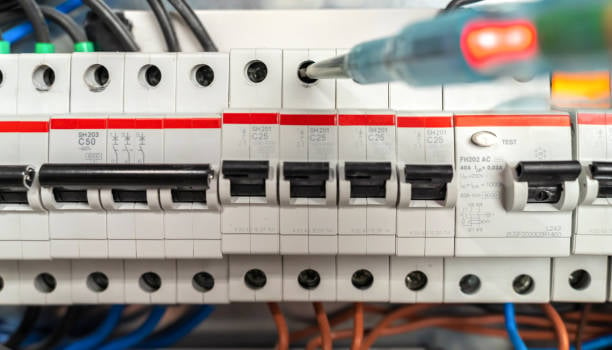The Importance of Miniature Circuit Breakers in Electrical Systems
In any electrical system, whether it is residential, commercial, or industrial, safety is of utmost importance. One crucial component that ensures the safety of the system is the miniature circuit breaker (MCB). MCBs are devices designed to protect electrical circuits from overcurrents and short circuits. They have become widely used due to their numerous advantages and disadvantages. In this article, we will explore the various aspects of MCBs and discuss their pros and cons.
Advantages of Miniature Circuit Breaker
Miniature circuit breakers offer several advantages over traditional fuses and other circuit protection devices. These advantages include:
1. Quick and Easy Resetting
One of the significant advantages of MCBs is their ability to be easily reset after tripping. Unlike fuses that need to be replaced, MCBs can simply be switched back on after the fault is rectified. This feature saves time and effort, ensuring minimum downtime and maximum convenience.
2. Enhanced Safety
MCBs are designed to provide enhanced safety compared to traditional fuses. They have built-in mechanisms to detect and respond to overcurrents and short circuits, automatically disconnecting the circuit to prevent damage or fire hazards. This feature significantly reduces the risk of electrical accidents and ensures the safety of both the electrical system and the people using it.
3. Selective Tripping
Another advantage of MCBs is their ability to selectively trip only the faulty circuit while keeping the rest of the electrical system operational. This feature allows for better fault localization and faster restoration of power, minimizing disruptions and improving efficiency.
4. Wide Range of Current Ratings
MCBs are available in a wide range of current ratings, making them suitable for various applications. Whether it is a small residential circuit or a heavy-duty industrial setup, there is an MCB with the appropriate current rating to provide optimal protection.
5. Compact and Space-Saving
Due to their compact size, MCBs occupy less space compared to other circuit protection devices. This advantage is particularly beneficial in modern electrical systems where space is often limited. The compactness of MCBs allows for more efficient utilization of available space and facilitates easier installation and maintenance.
Disadvantages of Miniature Circuit Breaker
While MCBs offer numerous advantages, they also have a few disadvantages that need to be considered. These disadvantages include:
1. Higher Initial Cost
Compared to traditional fuses, MCBs typically have a higher initial cost. This cost difference can be a deterrent for some budget-conscious consumers or projects. However, it is important to note that the long-term benefits and cost savings of MCBs often outweigh this initial investment.
2. Limited Short Circuit Withstand Capacity
MCBs have a limited short circuit withstand capacity, which means they may not be suitable for applications with high fault currents. In such cases, more robust circuit protection devices may be required to ensure the safety and reliability of the electrical system.
3. Sensitivity to Environmental Factors
Environment plays a significant role in the performance of MCBs. Extreme temperatures, humidity, and dust can affect their operation and lifespan. It is essential to consider the environmental conditions and choose MCBs that are suitable for the specific application.
4. Limited Overload Protection
While MCBs are effective in protecting against short circuits, their overload protection capabilities are relatively limited. For applications with a high risk of overload, additional protective measures may be necessary to prevent damage to the electrical system.
5. Difficulty in Identifying Faulty Circuit
In complex electrical systems with multiple MCBs, identifying the specific faulty circuit can be challenging. This difficulty stems from the lack of visual indication or labeling on MCBs. Proper documentation and labeling of circuits can help mitigate this disadvantage.
Conclusion
Miniature circuit breakers offer numerous advantages in terms of safety, convenience, and efficiency. Their quick reset capability, enhanced safety features, selective tripping, and compact size make them a preferred choice in modern electrical systems. However, it is essential to consider their higher initial cost, limited short circuit withstand capacity, sensitivity to environmental factors, limited overload protection, and difficulty in identifying faulty circuits. By weighing the advantages against the disadvantages and selecting the appropriate MCBs for the specific application, one can ensure the optimal protection and performance of the electrical system.

